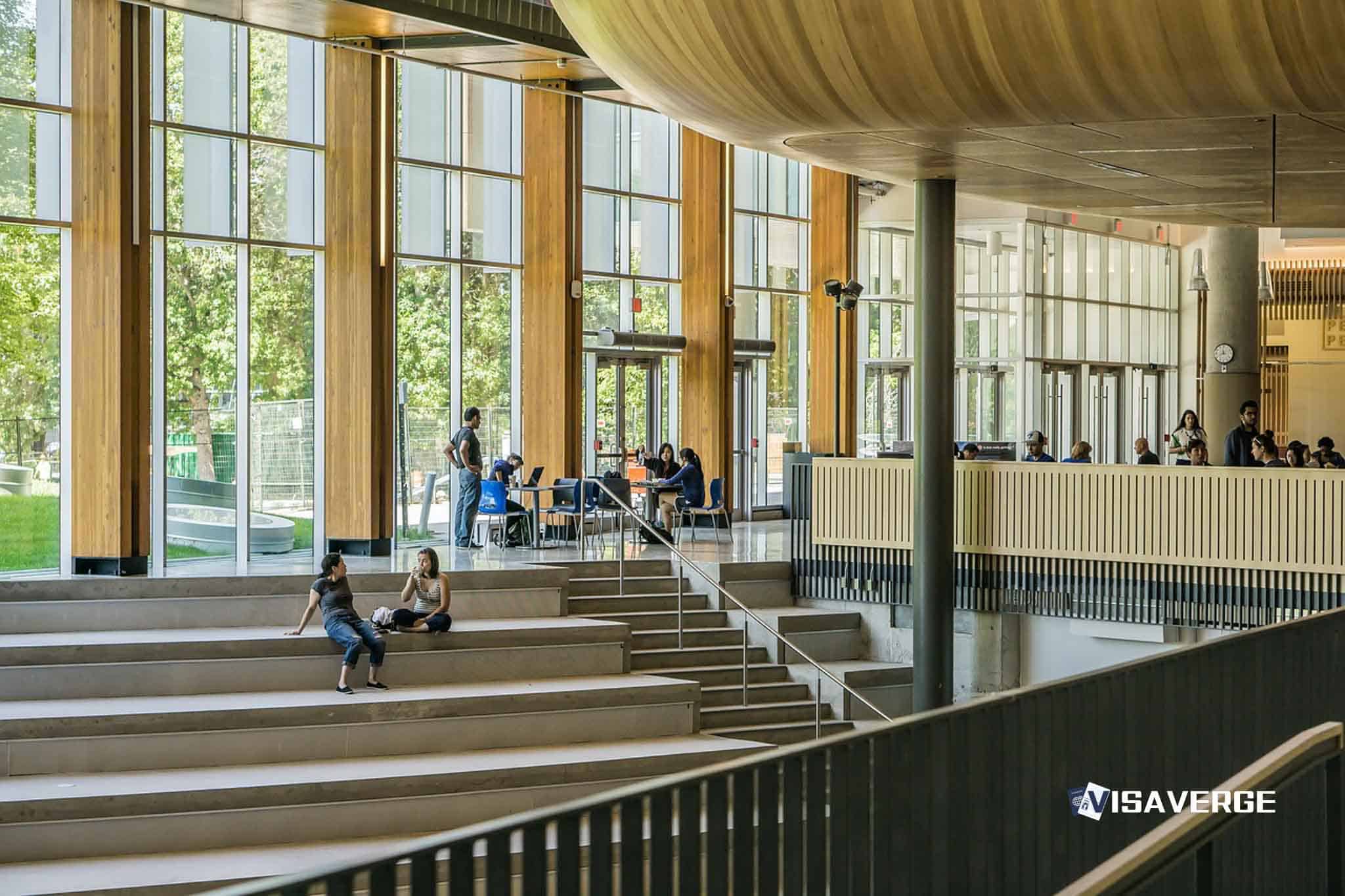The Trump administration’s latest move to narrow access to public aid for immigrants took shape across several agencies in 2025, as new rules and a sweeping law sharply tightened who can receive Federal Public Benefits, raised immigration fees, and limited work permits. The policy shift, rolling out in stages since July, affects millions of noncitizens across the United States and has already sparked lawsuits from states, immigrant rights groups, and health providers that warn of deeper fear and hardship in immigrant communities.
Core change: PRWORA reinterpretation

At the core of the changes is a new interpretation of the Personal Responsibility and Work Opportunity Reconciliation Act of 1996 (PRWORA), the welfare reform law that first restricted many federal benefits for people without “qualified” immigration status.
On July 14, 2025, the U.S. Department of Health and Human Services expanded what counts as “federal public benefits” under PRWORA, adding 13 new programs to the 31 already restricted for many immigrants. That expansion was set to take effect immediately but was quickly challenged in court.
A federal District Court issued an injunction on September 10, 2025, blocking the rule as it applies to the Health Center Program and Head Start in 20 states and Washington, D.C. In response, HHS postponed full implementation until September 11, 2025, while the legal fight continues.
Health advocates warn that tying the Health Center Program—community clinics that serve low‑income patients regardless of status—more tightly to PRWORA restrictions threatens to drive immigrants away from basic care like vaccines, prenatal visits, and chronic disease treatment.
Rollbacks of prior guidance and protections
Multiple agencies rescinded long-standing interpretations that had previously protected certain services from PRWORA limits:
- On July 11, 2025, the Department of Justice withdrew its 2001 interpretation of PRWORA, which had treated some services as exempt when they were “necessary to protect life or safety.” That guidance had shielded programs such as emergency shelters, domestic violence services, and certain health services from immigration-based eligibility limits.
-
The DOJ change took effect August 15, 2025, eliminating the broader exemptions and stating that only benefits clearly listed in the statute remain outside PRWORA’s reach.
-
The Department of Education on the same day revoked 1997 guidance that had long treated many career, technical, and adult education offerings as outside the category of Federal Public Benefits. By reclassifying those programs as covered by PRWORA, many non‑qualified immigrants are effectively barred from job training and adult English or literacy classes that had been available for decades.
Educators warn this reversal will push immigrant workers out of classrooms and deeper into low‑wage jobs with little opportunity for advancement.
Congressional action: One Big Beautiful Bill Act (OBBBA)
On July 4, 2025, President Trump signed the “One Big Beautiful Bill Act” (OBBBA), a sweeping law that immigration lawyers say locks many agency changes into statute and goes further in tying immigration status to basic supports.
Major elements of OBBBA include:
- Narrowed access to health coverage and tax credits.
- Dramatic fee increases for core immigration processes (asylum, work authorization).
- Expanded enforcement funding and authorities.
Key fee and penalty changes under OBBBA
The law imposes new and higher fees and penalties that advocates say will greatly burden vulnerable immigrants:
| Item | New amount / rule |
|---|---|
| Asylum filing fee (minimum, non-waivable) | $100, plus $100 for each year application remains pending |
| Special Immigrant Juvenile Status (children) | Minimum $250 fee |
| Penalty for border crossers caught between ports of entry | Minimum $5,000 penalty |
| Employment authorization (first-time) | At least $550 |
| Employment authorization (renewals) | $275, with renewals limited to one‑year validity |
Advocates and attorneys told VisaVerge.com that these fee hikes could force families to choose between filing for a work permit and paying rent or medical bills.
Work authorization and DHS actions
Separate from Congress, the Department of Homeland Security acted to further tighten work rules.
- On October 30, 2025, DHS issued a final rule ending the 540‑day automatic extension of Employment Authorization Documents (EADs) for people who file renewal applications on or after that date.
That extension previously let workers and businesses bridge long USCIS processing delays—delays that can exceed six months. With the buffer gone, advocates fear a wave of forced job losses as work cards expire before renewals are approved.
Health coverage: Medicare, Marketplace, and premium credits
Health coverage for immigrants is under pressure in multiple ways:
- OBBBA restricts Medicare eligibility for certain lawfully present immigrants. Some rules took effect immediately on July 4, 2025, and current beneficiaries who no longer meet the tighter standards must be disenrolled by January 4, 2027.
-
Regulations issued in June 2025 removed Affordable Care Act Marketplace eligibility for DACA recipients, effective August 25, 2025, excluding these young immigrants from subsidized private plans.
-
Enhanced premium tax credits that Congress expanded in recent years are set to expire at the end of 2025 for everyone, including immigrants. Policy estimates cited by advocates suggest that premiums could rise by more than 75% on average and could double in some states once those credits vanish.
Public health experts warn higher costs will push many immigrant families to drop coverage and rely on emergency rooms, creating the very strain on systems PRWORA was intended to prevent.
Children, tax credits, and mixed‑status families
The OBBBA changes to the Child Tax Credit cut off access to this anti‑poverty benefit for millions of children whose parents are immigrants.
- Community organizations working with mixed‑status families report parents are already questioning whether claiming remaining tax credits or filing returns could put them at risk with immigration authorities. That fear has been amplified by earlier public charge debates and the current focus on Federal Public Benefits.
Enforcement funding and detention
OBBBA provides $170 billion in new funding to federal agencies over coming years for detention, deportation, and border operations.
- The law directs money toward expedited removal, allowing swift deportations without a full hearing before an immigration judge.
- It also broadens the 287(g) program, authorizing state and local police to carry out certain federal immigration duties.
Civil rights groups say these measures will increase detention and speed removals while deepening mistrust between police and immigrant neighborhoods.
Claims vs. evidence
The administration defends the combined changes as necessary to protect taxpayers and curb what it calls “welfare tourism.” Critics point to data undermining that claim:
- The Cato Institute found that noncitizen immigrants use 54% less welfare than native‑born Americans.
Opponents argue that stretching PRWORA’s definition of Federal Public Benefits—rather than focusing on fraud or waste—sends a political message that any link between immigrants and public aid is unacceptable, even for immigrants who work and pay taxes.
The expanding restrictions and fee hikes risk creating a chilling effect: immigrants avoid care and services, not because they are ineligible, but because they fear consequences.
On-the-ground impacts
Service providers report real behavioral changes:
- Health centers tied to the Health Center Program say patients are skipping appointments or declining to renew sliding‑scale applications out of fear of being labeled public benefit users.
- Education counselors describe adult students dropping out of English or job‑training classes after learning those programs may now be classed as federal public benefits—even though the rules are not retroactive in that way.
Legal challenges and confusion
Multiple lawsuits have been filed and more are expected:
- A coalition of states is suing over the HHS rule that expanded PRWORA’s definition of Federal Public Benefits, arguing the agency exceeded its authority and failed to consider public health fallout.
- Other suits target limits on education programs, contending that reclassifying career and technical education as restricted federal benefits violates prior court rulings on access to basic schooling.
- VisaVerge.com analysis expects additional suits over Medicare and Marketplace changes once people start losing coverage.
Advocates also emphasize that confusion is harmful by itself. Because PRWORA is complex and “qualified” immigration categories are hard to track, stricter verification steps could create more red tape for everyone—including U.S. citizens—as agencies try to prevent ineligible immigrants from accessing programs. Local clinics and school districts report being pushed into the role of immigration screeners, with staff trained to ask more questions about status when families seek care, enroll children, or sign up for assistance.
Advice from advocates
Immigrant rights groups urge families to seek legal advice before dropping benefits and stress that many programs remain open to mixed‑status households and to certain categories of noncitizens. They point to federal guidance on PRWORA and federal benefits, including information from HHS on what counts as a federal public benefit and who is eligible, which is posted on the agency’s website at HHS: Federal Public Benefits under PRWORA.
Still, legal counsel notes the chilling effect is hard to reverse once fear spreads.
What’s next
With courts weighing how far agencies can push PRWORA and how broadly Congress can tie immigration status to Federal Public Benefits, the outcomes of these legal battles will shape access to health care, education, and basic income supports for immigrants for years to come.
For families in clinics, classrooms, and workplaces, these policy changes are already altering daily choices—whether to see a doctor, renew a work card, or sign up a child for Head Start—under a policy climate where many now view any public benefit as a risk.
This Article in a Nutshell
In 2025 agencies and Congress tightened access to Federal Public Benefits by reinterpreting PRWORA and passing OBBBA. HHS added 13 programs to the restricted list on July 14, 2025; DOJ and Education rescinded exemptions protecting life‑safety and vocational services. OBBBA raised immigration fees, limited Medicare and Marketplace access, cut tax credits, and funded enforcement. DHS ended the 540‑day EAD extension, risking job losses. Legal challenges and injunctions have partially blocked implementation, with courts now deciding broader effects.













